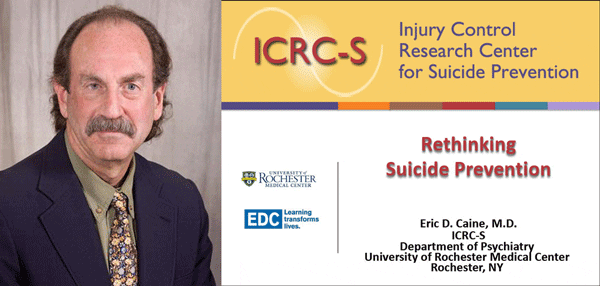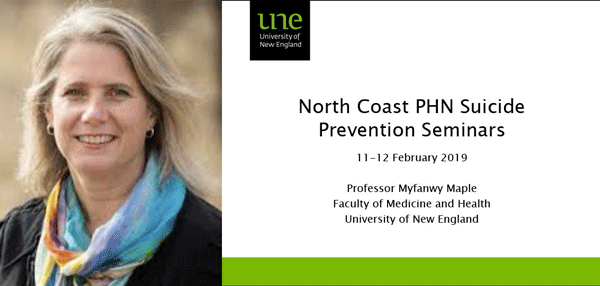In mid-February, North Coast Primary Health Network (NCPHN) and the University of New England brought two internationally renowned experts together to share their knowledge with three North Coast communities on how to reduce the incidence of suicide.
Professor Eric D Caine and Professor Myfanwy Maple were joined by both health professionals and community members at three events in Kempsey, Grafton and Lismore.
These events enabled Professors Caine and Maple to talk about proven ways to help prevent suicide. The professors were also keen to hear from local people about the particular challenges they face. They heard from community members and those on the ground dealing with people in distress who may be involved in a range of risk-taking behaviours. These include substance misuse, violence and other self-harming behaviours.
These events were the first of a number of community-led approaches to address this important topic.
Professor Caine told the gatherings that common barriers to suicide prevention include:
- People intent on suicide often do not seek help.
- Seemingly ‘normal’ people suicide.
- First attempts often are fatal.
- So-called “risk factors” (such as mental disorders, social isolation, depression) are common but suicide is uncommon. Risk factors are NOT predictive in individuals and fail as warning signs of an attempt.
Professor Caine stressed the need for a whole of community approach where the entire population is the target of prevention strategies. He explained that prevention can be achieved through promoting health and mental health and broadly reducing risk through elevating the mental health and wellbeing of everyone.
NCPHN’s Senior Manager, Mental Health, Suicide Prevention, Alcohol & Other Drugs, Liz Davis, said it’s clear that there is strong support for community-led approaches that nurture and support mentally healthy communities.
Professors Caine and Maple:
- shared strategies to reduce suicide that have worked both around the world and in Australia
- outlined the value of investing in a collaborative community prevention program to help reduce suicide risk
- talked about funding challenges and particular target groups, and
- presented a case study based in Armidale (Backtrack Boys)
These events were part of NCPHN’s work as one of the 12 lead sites in the National Suicide Prevention Trial.
Interested in getting involved with your local Suicide Prevention Action Committee?
We are seeking General Practitioners, other service providers and community members.
Register your interest today:
click here
Register Your Interest: Suicide Prevention Action Committees





